Tips for Creating Custom DTF Transfers You Will Love

Tips for Creating Custom DTF Transfers You Will Love
Whether you're a seasoned printing professional or new to the scene, understanding the nuances of creating custom DTF transfers can open up a world of possibilities for your business. From the strategic use of gang sheets to the dazzling effects of glitter and UV transfers, this guide will navigate through the essential steps and tips to ensure your DTF prints are loved by all.
Read below to learn how to harness the full potential of wholesale DTF prints, making every transfer a masterpiece.
DTF Transfers 101
Direct-to-film (DTF) transfers represent a cutting-edge printing method where designs are printed onto a special film and then transferred onto various materials using heat and pressure.
Direct-to-garment (DTG) printing requires printing directly on the fabric. However, DTF transfers can be applied to almost any material, making it a versatile choice for businesses looking to expand their product range.
The primary distinction between DTF and other printing technologies, such as DTG or screen printing, lies in its application flexibility and preparation process. While DTG is fabric-restrictive and screen printing demands extensive setup for each design, DTF simplifies the process by printing on a universal film.
This method eliminates the need for pre-treatment of the material, making it possible to apply vibrant prints on a broader array of surfaces, from textiles to rigid materials.
For businesses, especially those operating on a wholesale level, cost is always a consideration. DTF transfers offer a cost-effective solution, thanks to their low setup costs and efficient production process.
The ability to produce gang sheets, where multiple designs are printed on a single transfer film, further optimizes material usage and reduces waste.
Compared to other printing methods that may require significant training or technical skills, DTF printing is relatively straightforward. The process involves fewer steps. This makes it accessible to businesses of all sizes.
DTF prints are known for their high resolution and durability. The technology supports intricate designs with a wide color spectrum. This level of quality is essential for businesses aiming to maintain a reputation for premium products.
Key Components for High-Quality DTF Prints
Producing high-quality prints requires attention to several critical components. Understanding these elements can significantly enhance the:
- Vibrancy
- Consistency
- Durability of your prints
Importance of Color Management
Implement ICC (International Color Consortium) profiles specific to your printer, ink, and transfer film. These profiles help in managing color output by adjusting the colors to match the target as closely as possible.
Regularly calibrate your:
- Design software
- Monitors
- Printers to maintain color consistency
Calibration tools can help align your equipment's color output with industry standards.
Utilize soft proofing in your design software to get a preview of how your colors will look once printed. This step can help you make necessary adjustments before the actual printing process.
Selecting the Right Materials
Opt for premium DTF transfer films that have a good release property and are compatible with your ink type. High-quality prints ensure that the printed design transfers efficiently onto the substrate without losing detail or vibrancy.
Invest in high-grade DTF inks designed for your specific printer model. Quality inks provide better:
- Color saturation
- Durability
- Longevity
These all impact the overall appearance of the final print.
Equipment and Technology
Choose a printer that is specifically designed or can be adapted for DTF printing. Look for printers that offer high resolution and color accuracy to achieve detailed and vibrant prints.
A consistent application of adhesive powder and proper curing are essential for the durability of DTF prints. Equipment that evenly applies powder and cures it at the correct temperature ensures that the prints will adhere well to the substrate and withstand wear and tear.
Devices that remove excess powder from the printed film before curing can help in achieving a cleaner and more professional finish.
For precise trimming and shaping of the transfer films, especially when dealing with gang sheets or intricate designs, having accurate cutting equipment is beneficial.
Maximizing Efficiency with Gang Sheets
Gang sheets are a strategic approach in DTF printing, allowing multiple designs to be printed simultaneously on a single transfer film. This method maximizes material usage and streamlines the printing process. Understanding how to effectively design and organize gang sheets can significantly impact your production workflow and bottom line.
A gang sheet refers to a layout strategy where different designs are grouped together on one film sheet instead of printing them separately. This approach offers several benefits:
- Reduced material waste
- Cost savings
- Increased production speed
- Versatility
Designing Gang Sheets for Optimal Space
Before printing, plan how to arrange your designs on the sheet. Use design software to organize layouts efficiently, ensuring minimal unused space between designs.
Factor in the size and shape of your designs to optimize space. Rectangular arrangements can fit more uniformly shaped designs, while a jigsaw pattern may be better for irregular shapes.
While it's tempting to fit as many designs as possible on a sheet, ensure that this doesn't compromise the quality of the prints. Leave enough space around each design for easy cutting and application.
Tips for Organizing Designs on a Gang Sheet
Organize designs with similar colors or themes together to maintain consistency in your prints. This can also aid in the categorization of finished products.
Extend your designs to the edges of the transfer film, where possible, to fully utilize the material. However, be mindful of printer margins and capabilities.
If certain designs are more in demand, consider increasing their frequency on the gang sheet. This ensures that you have a ready supply of your best-sellers.
Achieving Excellence in Custom DTF Transfers
Creating designs that translate well to DTF prints starts with a few fundamental guidelines. Designs with clear, bold lines and readable text translate best onto the materials. While detail is possible with DTF technology, overly complex designs may lose clarity when transferred.
Keep in mind that colors might appear differently on various substrates. Use vibrant, contrasting colors to ensure your design stands out. Utilizing color management techniques can help achieve accurate color reproduction.
Consider the final application of your DTF transfer. The size and placement of your design should complement the item it will be applied to, whether it's a small pouch or a large banner.
Preparing Files for Printing
Proper file preparation is crucial for achieving high-quality DTF prints. Ensure your design files are in high resolution, typically 300 dpi (dots per inch) or higher, to avoid pixelation and ensure crisp print quality.
Save your designs in a format compatible with your DTF printer's software. Common formats include:
- PNG for its transparency support
- TIFF for its lossless quality
- PDF for its versatility
If your design software allows, separate elements into layers. This can help with adjusting individual components without affecting the entire design, offering more control over the final print.
Add a bleed area (extra space around your design) to ensure no unprinted edges occur during the transfer process. Also, consider any margins or spacing required by your printer.
The Importance of Testing
Testing is a critical step in the DTF printing process, often overlooked in the rush to fulfill orders. Different materials will react differently to heat and pressure. Testing helps identify the best temperature and pressure settings for each material.
Conduct tests to ensure the DTF ink and powder adhere well to your chosen substrate, which is vital for the longevity and washability of the print. Testing allows you to adjust your color profiles and printer settings to match your design intentions closely.
Use testing as an opportunity to refine your entire DTF process, from design to final application, identifying any issues that could affect quality or efficiency.
Specialty DTF Prints: Glitter and UV Transfers
In the dynamic world of DTF printing, glitter and UV transfers represent a creative frontier that can significantly elevate your product offerings. These specialty transfers add unique:
- Textures
- Effects
- Visual appeal
Standard prints can't match DTF printing, allowing businesses to cater to niche markets and consumer preferences for personalized and standout items.
Glitter DTF Transfers
Glitter DTF transfers incorporate glitter particles into the print, creating a sparkling effect that is perfect for fashion, accessories, and promotional items. The glitter adds a tactile dimension and visual interest, making the prints eye-catching and desirable for a wide range of applications.
UV DTF Transfers
UV DTF transfers go a step further by incorporating UV-reactive materials into the print, allowing the design to change appearance under UV light. This innovative feature offers an element of surprise and interactivity, making it an excellent choice for:
- Security
- Branding
- Novelty items
Elevating Your Brand with Custom DTF Transfers
Custom DTF transfers offer businesses unparalleled versatility, quality, and efficiency. By embracing the capabilities of DTF technology, you can propel your brand to new heights, differentiating your products in a saturated market.
DTF Transfers Wholesale is your trusted partner in this journey, committed to elevating your product lineup with our high-quality, efficient, and affordable DTF transfer services. Leveraging cutting-edge technology and a team of experienced professionals, we ensure your visions are transformed into crisp, vibrant prints that captivate your audience.
Discover the difference with DTF Transfers Wholesale!

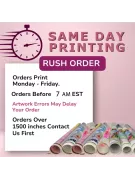
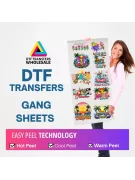
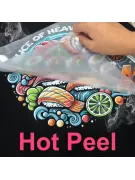
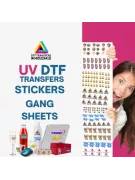
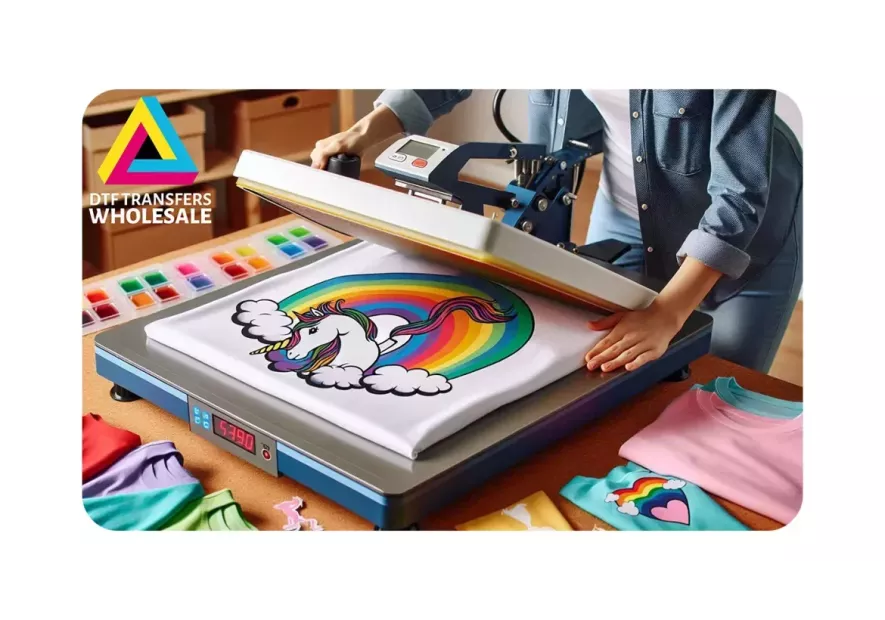

Leave a comment